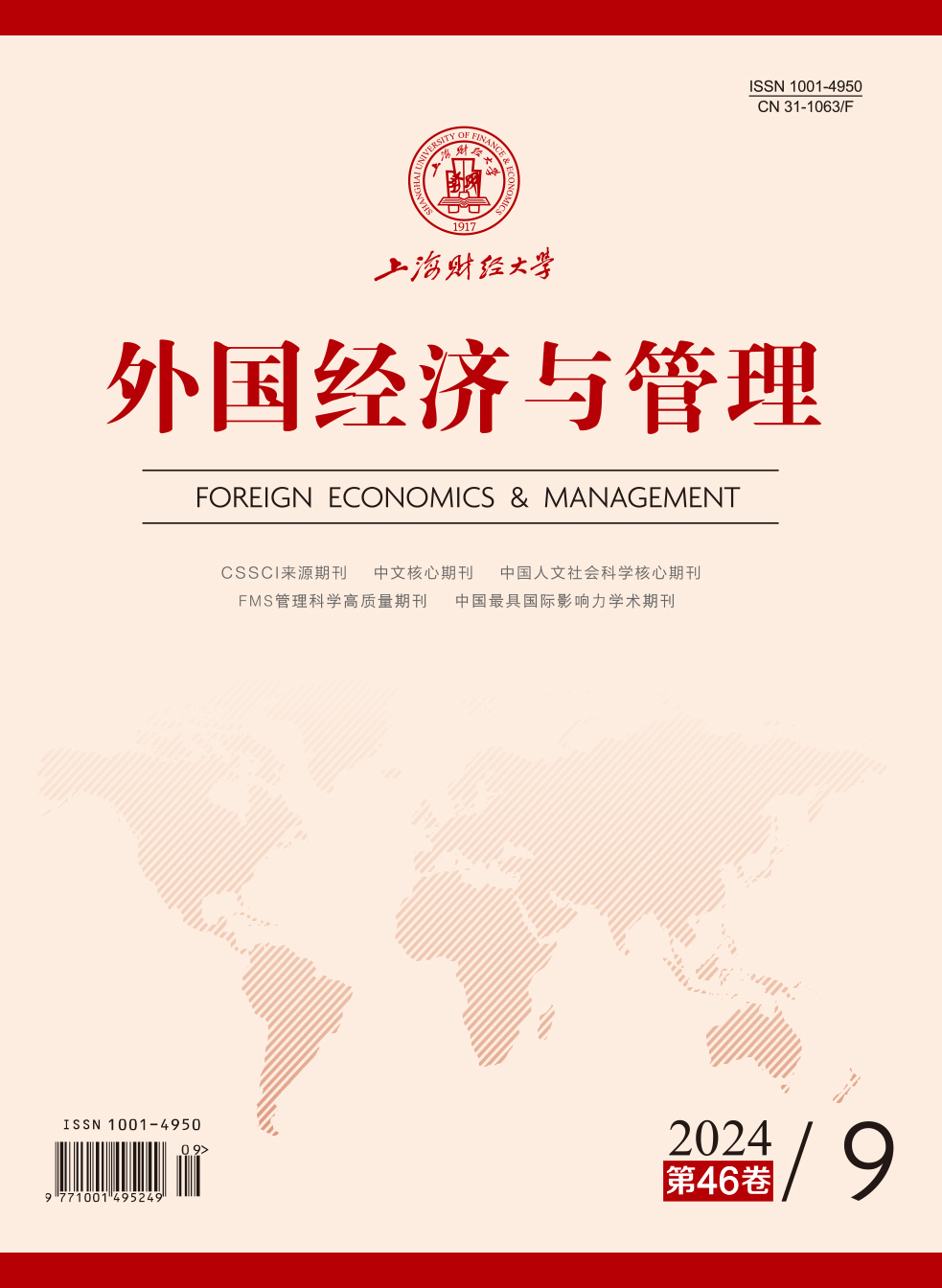当传承遇到转型,接班人肩负着家族企业跨代创业的使命。然而家族企业中存在的躺平现象使得跨代持续发展面临挑战。为破解躺平困局,本文沿着“团队意志—团队过程—团队行为”的研究路径,以期探索一条解决家族企业接班人躺平现象的新思路。通过对2003—2021年中国深沪A股已完成代际传承的上市家族企业的质性素材进行内容分析,研究发现,团队心智结构越统一越有利于跨代企业家精神的激发。机制分析表明,团队心智结构主要通过资源支持、机会提供、能力提升以及动机推动来激发跨代企业家精神的产生。异质性分析表明,团队学历高、团队任期长以及业绩水平低的企业,团队心智结构对跨代企业家精神的激发作用更为显著。本研究对探索跨代企业家精神的激发具有一定的理论和实践价值。
团队心智结构对家族企业跨代企业家精神的影响
摘要
参考文献
1 江艇. 因果推断经验研究中的中介效应与调节效应[J]. 中国工业经济, 2022, (5): 100-120. DOI:10.3969/j.issn.1006-480X.2022.05.007
2 李婵, 葛京, 游海. 制度工作视角下家族企业代际传承过程中权威转换机制的案例研究[J]. 管理学报, 2021, 18(8): 1128-1137. DOI:10.3969/j.issn.1672-884x.2021.08.003
5 潘越, 翁若宇, 纪翔阁, 等. 宗族文化与家族企业治理的血缘情结[J]. 管理世界, 2019, 35(7): 116-135,203-204. DOI:10.3969/j.issn.1002-5502.2019.07.011
8 Andrevski G, Ferrier W J. Does it pay to compete aggressively? Contingent roles of internal and external resources[J]. Journal of Management, 2019, 45(2): 620-644. DOI:10.1177/0149206316673718
9 Cope J. Toward a dynamic learning perspective of entrepreneurship[J]. Entrepreneurship Theory and Practice, 2005, 29(4): 373-397. DOI:10.1111/j.1540-6520.2005.00090.x
10 Dequech D. Cognitive and cultural embeddedness: Combining institutional economics and economic sociology[J]. Journal of Economic Issues, 2003, 37(2): 461-470. DOI:10.1080/00213624.2003.11506594
11 Edwards M R. Organizational identification: A conceptual and operational review[J]. International Journal of Management Reviews, 2005, 7(4): 207-230. DOI:10.1111/j.1468-2370.2005.00114.x
12 Hébert R F, Link A N. In search of the meaning of entrepreneurship[J]. Small Business Economics, 1989, 1(1): 39-49. DOI:10.1007/BF00389915
13 Jaskiewicz P, Combs J G, Rau S B. Entrepreneurial legacy: Toward a theory of how some family firms nurture transgenerational entrepreneurship[J]. Journal of Business Venturing, 2015, 30(1): 29-49. DOI:10.1016/j.jbusvent.2014.07.001
14 Jung H, Vissa B, Pich M. How do entrepreneurial founding teams allocate task positions?[J]. Academy of Management Journal, 2017, 60(1): 264-294. DOI:10.5465/amj.2014.0813
15 Marler L E, Botero I C, De Massis A. Succession-related role transitions in family firms: The impact of proactive personality[J]. Journal of Managerial Issues, 2017, 29(1): 57-81.
16 Minniti M, Bygrave W. A dynamic model of entrepreneurial learning[J]. Entrepreneurship Theory and Practice, 2001, 25(3): 5-16. DOI:10.1177/104225870102500301
17 Mohammed S, Klimoski R, Rentsch J R. The measurement of team mental models: We have no shared schema[J]. Organizational Research Methods, 2000, 3(2): 123-165. DOI:10.1177/109442810032001
18 Randolph R V, Li Z H, Daspit J J. Toward a typology of family firm corporate entrepreneurship[J]. Journal of Small Business Management, 2017, 55(4): 530-546. DOI:10.1111/jsbm.12342
19 Reay T. Family routines and next-generation engagement in family firms[J]. Entrepreneurship Theory and Practice, 2019, 43(2): 244-250. DOI:10.1177/1042258718796083
20 Rosenkranz C, Wulf T. Behavioral integration as a relational governance mechanism in family firms—The moderating role of family involvement in management[J]. Journal of Small Business Management, 2019, 57(3): 801-819. DOI:10.1111/jsbm.12325
21 Yang W, Meyer K E. How do local and foreign firms compete? Competitive actions in an emerging economy[J]. International Business Review, 2020, 29(3): 101689. DOI:10.1016/j.ibusrev.2020.101689
22 Zellweger T M, Chrisman J J, Chua J H, et al. Social structures, social relationships, and family firms[J]. Entrepreneurship Theory and Practice, 2019, 43(2): 207-223. DOI:10.1177/1042258718792290
23 Zellweger T M, Nason R S, Nordqvist M. From longevity of firms to transgenerational entrepreneurship of families: Introducing family entrepreneurial orientation[J]. Family Business Review, 2012, 25(2): 136-155. DOI:10.1177/0894486511423531
引用本文
吴炯, 肖姗姗. 团队心智结构对家族企业跨代企业家精神的影响[J]. 外国经济与管理, 2024, 46(9): 3-16.
导出参考文献,格式为:





 4467
4467  5316
5316

